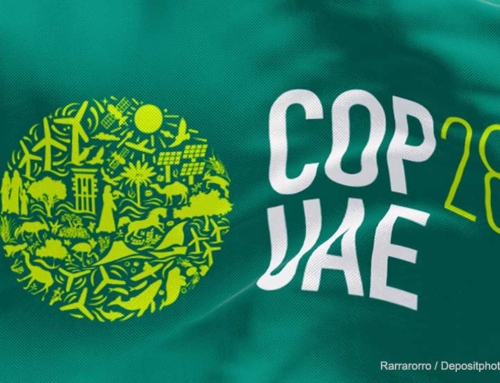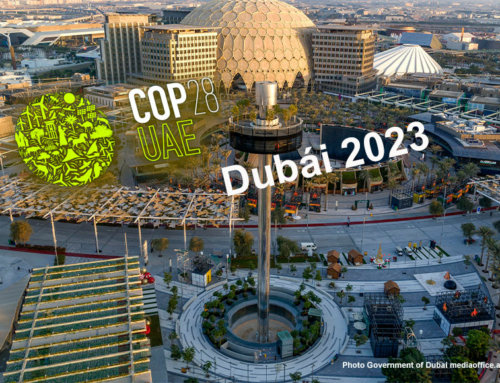It is to be recognized that in the last ten years attention has been increased on such important issues as global warming, climate change, elephant killings or the Paris Agreement, but there is also much to be done. For example, a short video of a poor lady falling down some steps may have ten or twenty million views, while another video, of similar length, but on climate change or forest deforestation, if you get a hundred is a lot. For those of us who work on these issues, that is quite strong, but in turn it is the engine that makes us follow ahead.
And we are in the “Civilization of entertainment”, as well as Mario Vargas Llosa, title of his essay on the subject. In this magnificent description of the time we have lived, the author of “The city and the dogs” tells of a young sculptor trying to appear in Paris without any success. To his small exhibitions nobody attended. One day he moved to a radio station and told them what he was up to. It seemed to them news that the guy described and then began to radiate. For the first time in Paris was presented a sample of sculptures made with authentic human excrement. Needless to say, that the line of people turned de block, and the guy turned the shit into gold.
This anecdote is symptomatic of an era sensation, sensationalism, seeking pleasure in the bizarre, as never seen or done, in the novelty as entertainment, the show, the light news, the easy image, quick videos or unwise videos taken and send from the pocket phone. All this together with the little time given to each visited content, since you must go to the next, to the other, to the link found, and so all day, with the aggravating fact that night is very little that remember of the hundred and half topics of all kinds seen in the day. We are in a dizzying time, immediacy, pragmatism, of the individual who wants everything fast. The average time of permanence in some place of the network is measured in seconds.
But not only the technology has been the one that has brought us to this time of the “Carpe diem”, which prescribes enjoying the day as if it were the last. There are factors other than “gadgets” and “apps” that have relegated interest to knowledge to a third plane. Societies have begun to remove literature, philosophy and history from the scholar curricula. Now editors prefer stories without a moral end, the “best sellers” and interactive comics to literature. Some literary agencies put notice on their websites “no poetry is accepted.” Just need to read: “Warning, brave dog, poets not approaching! “It is the 21st century culture”, say those who defend this system.
Viktor Frankl in his work, “The existential vacuum”, already in the fifties talked about the frustration about the lack of meaning of life, important track to understand what is happening. We also find a common thread in Espidio Freire, in his “Mileuristas, portrait of the generation of the thousand euros”, referred to the European youth, but applicable more or less to all latitudes. Freire speaks to us in 2006 of the number of young professionals, brilliant, graduates cum laude, speakers of three and four languages, but who must live in precariousness, with average salary of thousand euros per month, which has since declined and many now would like to earn those thousand euros, forced to live close to their parents until the age of 30 and 40, in an affluent society that has not paid their efforts, let alone their knowledge. To them, almost from the cradle, their parents had been saying that if they studied hard and graduated with good grades, they would have guaranteed an excellent quality of life, a promise that was not fulfilled in most cases.
Given this reality, how can they be required to acquire more knowledge? These young people, who have burned their eyelids studying during much of their adolescence and youth, once inserted in the labor markets have crashed against the harsh reality that the salary barely enough to survive. Others are worse off because they cannot leave the mass of the unemployed and many others only get positions of interns, almost without salary. Worse yet, in the rearview mirror they see their father’s advice again and again, but when they look through the windshield, what they see is a lot of poorly prepared people swimming in pools filled with bills, often from bad money had.
In a big picture, what is described here is the amalgam of our days, made of frustration, anger, resentment and rebellion, and partly explains why the old lady who falls down the ladder has twenty million revisions and the themes of planet hundred. The videotape is faster and more fun than the ten minutes it takes to read the disaster happened to the jungle in Borneo, just to cite an example. It is not surprising that the repair of the planet, promised to the youth by the same generation that offered him quality of life in exchange for school sacrifices, is not credible. Why should it be? Are politicians setting a good example? All this underlay within their heads as an intangible nebula, while the “carpe diem” if it is a safe and more accessible bet for them. Given this reality, it is not easy to achieve for those of us who have the activism of the Earth as a passion, for the young and not so young to focus their attention on greenhouse gases, sustainable development or the destruction that is taking place at this moment in the rainforest of Amazon, the lung of the world.
The UN-sponsored COP23 is to be held in the German city of Bonn between 6 and 17 November. It will be presided over by Fiji, that lovely little Pacific island, very vulnerable to climate change. So the twenty-third installment of the Climate Change Conferences will be the first to have two heads. It is a good opportunity to start focusing on these events and to involve children, adolescents and young people in particular, as the UN and other organizations are already doing. It is very gratifying to hear children from different latitudes speak with such emotion and sincerity about the planet and the future they want for Mother Earth. It is indeed a commendable work of the UN. To conclude, a special recognition is given to Mrs. Patricia Espinosa, Executive Secretary of the UNFCCC *, who has put a world to it to carry out the COP23. It is worth take a look at this event.
Sandor Alejandro Gerendas-Kiss
* United Nations Framework Convention on Climate Change
Recommended reading: Brief History of COPs







Leave A Comment